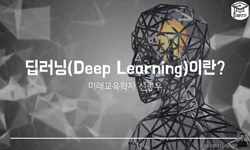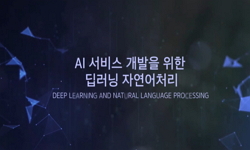본 논문에서는 딥러닝 지도학습 알고리즘을 사용한 학습 모델을 대상으로 미용 관련 피부질환 인식의 효과성을 실험적으로 비교한다. 최근 딥러닝 기술을 산업, 교육, 의료 등 다양한 분야...
http://chineseinput.net/에서 pinyin(병음)방식으로 중국어를 변환할 수 있습니다.
변환된 중국어를 복사하여 사용하시면 됩니다.
- 中文 을 입력하시려면 zhongwen을 입력하시고 space를누르시면됩니다.
- 北京 을 입력하시려면 beijing을 입력하시고 space를 누르시면 됩니다.

An Experimental Comparison of CNN-based Deep Learning Algorithms for Recognition of Beauty-related Skin Disease
한글로보기https://www.riss.kr/link?id=A107196882
- 저자
- 발행기관
- 학술지명
- 권호사항
-
발행연도
2020
-
작성언어
Korean
- 주제어
-
등재정보
KCI등재
-
자료형태
학술저널
- 발행기관 URL
-
수록면
25-34(10쪽)
- DOI식별코드
- 제공처
-
0
상세조회 -
0
다운로드
부가정보
국문 초록 (Abstract)
본 논문에서는 딥러닝 지도학습 알고리즘을 사용한 학습 모델을 대상으로 미용 관련 피부질환 인식의 효과성을 실험적으로 비교한다. 최근 딥러닝 기술을 산업, 교육, 의료 등 다양한 분야에 적용하고 있으며, 의료 분야에서는 중요 피부질환 중 하나인 피부암 식별의 수준을 전문가 수준으로 높인 성과를 보이고 있다. 그러나 아직 피부미용과 관련된 질환에 적용한 사례가 다양하지 못하다. 따라서 딥러닝 기반 이미지 분류에 활용도가 높은 CNN 알고리즘을 비롯하여 ResNet, SE-ResNet을 적용하여 실험적으로 정확도를 비교함으로써 미용 관련 피부질환을 판단하는 효과성을 평가한다. 각 알고리즘을 적용한 학습 모델을 실험한 결과에서 CNN의 경우 평균 71.5%, ResNet은 평균 90.6%, SE-ResNet은 평균 95.3%의 정확도를 보였다. 특히 학습 깊이를 다르게하여 비교한 결과 50개의 계층 구조를 갖는 SE-ResNet-50 모델이 평균 96.2%의 정확도로 미용 관련 피부질환 식별을 위해 가장 효과적인 결과를 보였다. 본 논문의 목적은 피부 미용과 관련된 질환의 판별을 고려하여 효과적인 딥러닝 알고리즘의 학습과 방법을 연구하기 위한 것으로 이를 통해 미용 관련 피부질환 개선을 위한 서비스 개발로 확장할 수 있을 것이다.
다국어 초록 (Multilingual Abstract)
In this paper, we empirically compare the effectiveness of training models to recognize beauty-related skin disease using supervised deep learning algorithms. Recently, deep learning algorithms are being actively applied for various fields such as ind...
In this paper, we empirically compare the effectiveness of training models to recognize beauty-related skin disease using supervised deep learning algorithms. Recently, deep learning algorithms are being actively applied for various fields such as industry, education, and medical. For instance, in the medical field, the ability to diagnose cutaneous cancer using deep learning based artificial intelligence has improved to the experts level. However, there are still insufficient cases applied to disease related to skin beauty. This study experimentally compares the effectiveness of identifying beauty-related skin disease by applying deep learning algorithms, considering CNN, ResNet, and SE-ResNet. The experimental results using these training models show that the accuracy of CNN is 71.5% on average, ResNet is 90.6% on average, and SE-ResNet is 95.3% on average. In particular, the SE-ResNet-50 model, which is a SE-ResNet algorithm with 50 hierarchical structures, showed the most effective result for identifying beauty-related skin diseases with an average accuracy of 96.2%. The purpose of this paper is to study effective training and methods of deep learning algorithms in consideration of the identification for beauty-related skin disease. Thus, it will be able to contribute to the development of services used to treat and easy the skin disease.
목차 (Table of Contents)
- Abstract
- 요약
- I. Introduction
- II. Background
- III. Experimentation
- Abstract
- 요약
- I. Introduction
- II. Background
- III. Experimentation
- IV. Results and Analysis
- Ⅴ. Conclusion
- REFERENCES
동일학술지(권/호) 다른 논문
-
Research on the Content to Develop Instructor"s Certification for Software Education
- 한국컴퓨터정보학회
- Soo-Jin Jun(전수진)
- 2020
- KCI등재
-
Development of teaching and learning materials using Arduino and piezo buzzer
- 한국컴퓨터정보학회
- Eun-Sang Lee(이은상)
- 2020
- KCI등재
-
Determinants of Debt Ratio in Public Institutions
- 한국컴퓨터정보학회
- Ji-Kyung Jang(장지경)
- 2020
- KCI등재
-
- 한국컴퓨터정보학회
- Jae-Hong Lee(이재홍)
- 2020
- KCI등재





 ScienceON
ScienceON DBpia
DBpia






